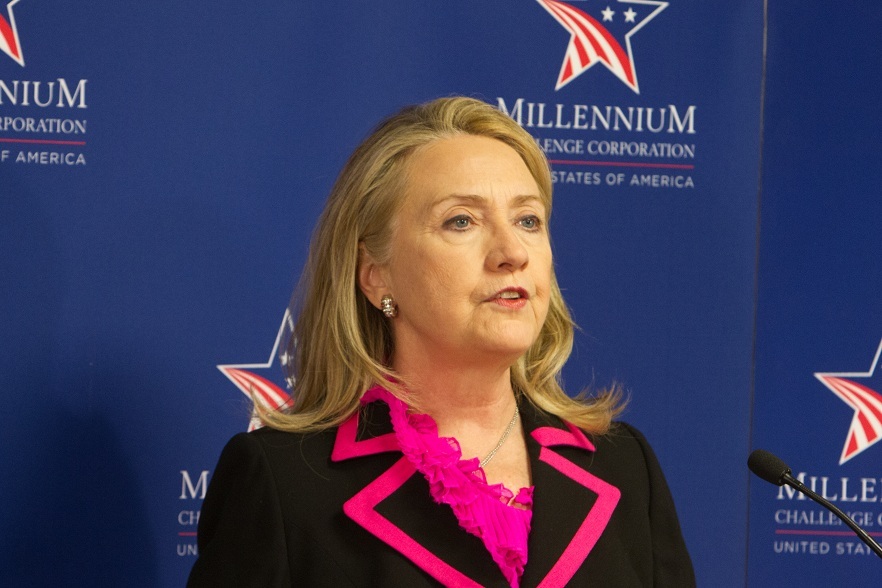
Former Secretary of State Hillary Rodham Clinton, who spoke at MCC in 2012, recently announced the launch of No Ceilings: The Full Participation Project.
Hillary Rodham Clinton just launched a global review of data on the advancement of women and girls. The former Secretary of State (and former chair of MCC’s Board of Directors) is using her platform at the Bill, Hillary & Chelsea Clinton Foundation to partner with the Bill & Melinda Gates Foundation on No Ceilings: The Full Participation Project, which aims to gather and analyze data on the progress of women globally. I am thrilled that she is focusing on two issues of importance to MCC—gender parity and data—and hope it paves the way for more and better data across development decision-making.
The project aims to track global progress of women and girls since the 1995 United Nations Conference on Women in Beijing. In the nearly two decades since the conference, have women advanced in education? Are they serving as elected officials more frequently? What about women’s economic participation: Are there fewer women living in poverty? Have women’s wages increased in an absolute matter? How about relative to men? To answer any of these questions, one needs high-quality data and the capacity to analyze it well, and this is exactly the challenge No Ceilings hopes to tackle.
At MCC, we rely on a huge amount of third-party data for making decisions about which countries we work with, which investments are most likely to lead to economic growth and poverty reduction (and for whom) and for measuring and understanding our results. My colleagues and I are deeply interested in ensuring high-quality data exists and that development stakeholders use that data responsibly. We know how powerful data can be in driving decisions. And we know how frustrating it can be when there isn’t good data or the data is weak.
This new initiative could advance the data in development conversation; particularly since it:
- Brings accountability to global promises. In 1995, the world came together and promised to advance women’s empowerment. Without data on women’s literacy rates or incidences of violence against women, for example, it is impossible to know if there has been progress on these promises. Data help provides answers.
- Has an eye on post-2015 goals. As the Millennium Development Goals race towards their 2015 target date, the global community will need to come together towards new post-2015 goals. By highlighting where progress has (and hasn’t) been made towards women’s empowerment over the past two decade, No Ceilings has the potential to inform where the global community can best focus the next wave of commitments.
- Is likely to serve as a “gap analysis.” Although the project primarily aims to analyze existing data, it is likely to highlight all the areas where data is low-quality (or simply non-existent). By identifying the unmet needs for data, No Ceilings has the potential to inspire fresh efforts at capturing new data, much like MCC’s selection scorecard has helped development stakeholders examine the quality of global policy data over the past decade.
- Uses traditional and non-traditional data sources. With Google in the mix, it is likely No Ceilings will have access to data that hasn’t traditionally been explored by development stakeholders. I look forward to seeing if new data, indicators or ideas comes out of the data review and analysis.
More than anything, we know that for women and girls to count in economic development projects, they must be counted. Their progress in education, politics and economics must be counted. And as MCC seeks to reward governments that promote women’s economic participation—and ensure women benefit from MCC compacts—this data is a vital tool for tracking progress. I’m eager to see No Ceilings help us do just that.

